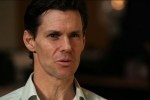Like anything, marketing is a fluid, dynamic creature.
Brands are continually looking for new ways to communicate and connect with target audiences. At the same time, they need to outflank competitors that are pursuing the same consumers.
It means brands are experimenting, innovating and looking for different approaches and tools to gain an edge, even if it is a small advantage.
It explains why we have seen the embrace of social media and content marketing in recent years.
While social media may seem old school these days, it was not that long ago that it was embraced as a dynamic and exciting way to engage and having conversations with consumers.
Social media changed the brand-consumer dynamic by making it a two-way communications channel. Brands could talk to consumers, and consumers could talk back to brands.
As many brands embraced social media, it became apparent there were limitations. Social media is a terrific distribution vehicle, but it has to be powered, in part, by content created by a brand and often curated from other sources.
This led to the explosion of content marketing as brands were told they had to become publishers so they could offer content that consumers found valuable. In an ideal world, content marketing drives awareness and the sales funnel, and it fuels a brand’s social media channels.
But as brands leverage social media and content marketing, there is an awful lot of content being created, published and shared. It has become a noisy and busy landscape at a time when consumers are distracted and multi-tasking.
As a result, it is increasingly difficult for brands to capture the spotlight, even when they are active on social media and content marketing.
Now, brands are looking for ways to better engage and connect with consumers. How do they get consumers to pay attention and, at the same, time drive affinity, sales and loyalty?
The concept getting more attention is storytelling.
In simple terms, it is marketing focused on the consumer – their goals, needs, interests, aspirations, motivations and problems. It is marketing that has everything to do with the consumer, not the product.
At a time when consumers have access to lots of information about a product’s prices and features, consumers want more from a brand. They want to feel valued. They want to know a brand understands them and how they live their lives – professionally and personally.
It requires brands to change how they do marketing. While they are trying to win business, they also need to immerse consumers into an experience that relates to them and other people.
A good example is Airbnb’s new video, which is focused on the joys of travelling. It has nothing to do with how consumers can book places to stay online around the world.
So what is Airbnb trying to do?
It wants to connect with the aspirations and hopes of consumers. People dream about travelling, while accommodation is a secondary (but necessary) consideration that is part of the process.
As a result, the video features concepts such as connecting, feeling accepted and “belonging everywhere”. Airbnb wants to stand for “something bigger than travel”. It talks to the company’s vision in a way that resonates with consumers.
Storytelling is going to require brands to think and act differently. They will have to be even more customer-centric. They will need intimate knowledge of their customers that go way beyond product.
At the same time, brands need to be creative, flexible and agile to deliver stories that are personal, relevant and timely.
For brands looking to establish a competitive advantage, storytelling is a huge opportunity. My take is that unlike social media and content marketing, storytelling is challenge to make happen because it is more than simply going through the motions tactically.
It means brands that become good at storytelling can separate themselves from rivals in a distinct and sustainable way.
About the Author
Mark Evans is a marketing consultant who helps start-ups and fast-growing companies tell better stories (aka marketing). To learn more about startup marketing and the power of storytelling, check out his new book, Storytelling for Startups. (www.storytellingforstartups.ca)
Want the inside scoop on the State of Marketing in 2015? Download the free Salesforce report:


























